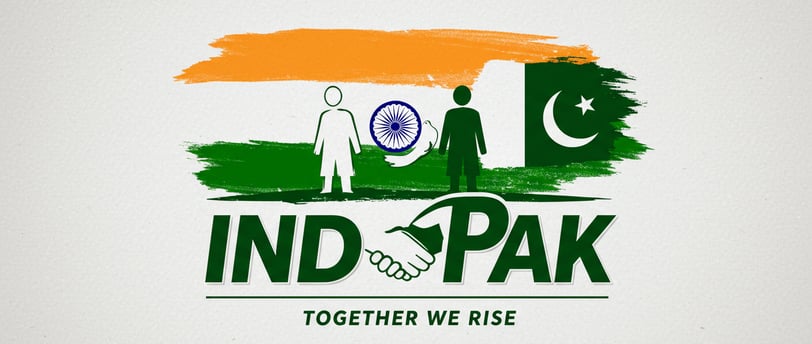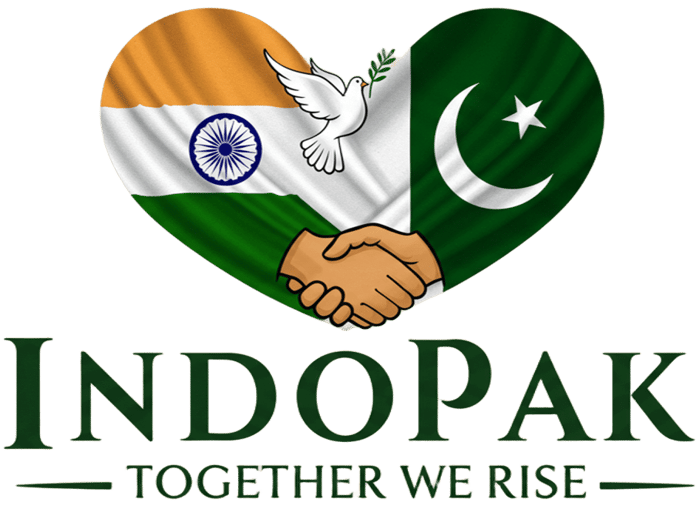Pathway to Peace: Bridging Indo-Pak Relations for a Prosperous Future
Explore strategies for transforming Indo-Pak conflicts into collaboration, emphasizing diplomacy, economic ties, and cultural exchanges. By addressing key issues and fostering mutual trust, we can pave the way for a harmonious and prosperous relationship between India and Pakistan, benefiting both nations and their citizens.
5/8/20242 min read


Title: Pathway to Peace: Bridging Indo-Pak Relations for a Prosperous Future
India and Pakistan, two neighboring nations with shared history, culture, and challenges, have long been entangled in a complex relationship marked by conflict and mistrust. However, the time has come to replace animosity with amity, and confrontation with collaboration. Transforming this relationship is possible—and essential—for the peace, stability, and prosperity of over a billion people. The pathway to peace lies in embracing diplomacy, deepening economic ties, and promoting cultural exchange.
Diplomacy: Building a Foundation of Trust
Sustained diplomatic engagement is critical to defusing tensions and resolving historical disputes. Regular bilateral talks, the revival of comprehensive dialogue processes, and the use of neutral mediators where necessary can help rebuild trust. Confidence-building measures such as military-to-military hotlines, ceasefire agreements, and cooperation in humanitarian issues are foundational steps. Institutionalizing peace talks at various levels—including political, military, and civil society—ensures continuity and commitment to dialogue.
Economic Collaboration: Turning Borders into Gateways
Economic engagement between India and Pakistan has immense untapped potential. Facilitating trade through simplified procedures, tariff reductions, and direct transport links can spur economic growth on both sides. Sectors such as textiles, agriculture, and pharmaceuticals are particularly suited for bilateral cooperation. Cross-border infrastructure projects, joint ventures, and technology partnerships can convert geopolitical fault lines into economic bridges. By making trade a cornerstone of their relationship, both nations can cultivate a powerful incentive for peace.
Cultural Exchange: Humanizing the ‘Other’
One of the most effective ways to counter decades of distrust is to encourage cultural engagement. Promoting student and artist exchanges, co-hosting film and music festivals, and supporting literature that celebrates shared heritage can humanize each side in the eyes of the other. Sports diplomacy, particularly cricket and hockey, also offers opportunities to build goodwill and showcase the potential of cooperation.
Addressing Core Issues: Courageous and Honest Dialogues
While diplomacy and cultural exchange are vital, addressing core issues such as Kashmir, terrorism, and water sharing is unavoidable. Honest, transparent, and courageous dialogue is needed to arrive at sustainable solutions. Tackling these sensitive topics with political will and public support is key to achieving lasting peace.
Shared Challenges, Shared Solutions
Both nations face common challenges—climate change, public health emergencies, water scarcity, and poverty. Collaborative efforts in these areas can create a new narrative of unity. Joint task forces on climate resilience, coordinated responses to pandemics, and cooperative disaster management initiatives can foster mutual dependence and trust.
Shaping the Future Through Media and Education
The media and education systems play a pivotal role in shaping perceptions. Promoting peace journalism and integrating peace education into curricula can instill values of tolerance and coexistence in future generations. Public campaigns celebrating stories of cooperation can influence mindsets and encourage empathy across borders.
Conclusion: A Shared Dream of Peace
Bridging Indo-Pak relations is not just about avoiding conflict—it is about unlocking a shared dream of peace and prosperity. With courage, vision, and sustained effort, India and Pakistan can rewrite their story. A future built on mutual respect and cooperation is not only possible—it is necessary. The world watches, but it is the people of both nations who must lead the way toward a peaceful and prosperous tomorrow.
